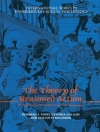The construct ‘‘quality of life (Qo L)’’, since the 1980s, when it was introduced, is being used mainly in the context of health problems. Areas of one’s life that contribute to Qo L are good physical and mental health, efficient cognitive functioning, social support, being able to meet the requirements of professional life, positive emotions, etc (Power, 2003). Work on subjective well-being (SWB), on the other hand, was developed in the context of healthy everyday life; it also has a history of more than 30 years. During this 30-year period factors that have an impact on SWB, such as SES, gender, health, age, and religiosity have been identified (Diener, 2000). A third independent line of research pertains to what has been called Positive Psychology (Seligman & Csikszentmihalyi, 2000), that is, an emphasis on human strengths, such as optimism, hope, wisdom, positive emotions, resilience, etc., which contribute to positive functioning in life. Recently, SWB has been associated to human strengths and to the movement of positive psychology but this did not happen for Qo L, possibly because of its emphasis on people with health problems. However, Qo L can be conceived of as a generic term that pertains to all people, healthy or not. In this sense, it is closely related to SWB defined as happiness (Diener, 2000). Also, Qo L encompasses positive emotions that go beyond happiness and has the advantage that it can be applied to many different domains of life such as interpersonal relations, health-related situations, and professional and educational strivings. Moreover, the mechanism(s) that underpin Qo L and SWB can be studied in relation to people’s goals and strengths of character, that is, from a positive psychological perspective. Such a perspective can reveal the specificities of “quality” in the various domains of life and, specifically, the positive emotions and strengths that contribute to a happier, healthier, and more successful life, even inface of adversity. Therefore, despite the differences among the three theoretical traditions, namely Qo L, SWB, and positive psychology, it is possible to find the common ground they share and each of them can benefit from notions developed in the others. The aim of the present book is to bring together these three traditions, show the interactions of variables emphasized by them, and give an integrative perspective from the positive psychology point of view. It also aims to extend the range of life situations in which one can look for quality and which go beyond the traditional emphasis of Qo L on health problems. Thus, the content of the proposed book covers different age populations (from children to older adults), healthy and people facing health problems as well as people facing problems in their interpersonal lives or in their pursuits. It also discusses factors that contribute to marital satisfaction, well being in the school context, and things that people value and cherish. The chapters refer to notions such as happiness, interest, resilience, wisdom, hope, altruism, optimism, and spirituality/religiosity that represent unique human strengths. Finally, it emphasizes the role of goals and motivation that connect SWB with self-regulation and managing of one’s life priorities. To conclude, the chapters included in the proposed edited book aim at bringing to the fore new theoretical developments and research on Qo L, SWB, and positive psychology that bridges previously distinct theoretical traditions. The proposed book covers a broad range of topics, addresses different theoretical interests and paves the way for a more integrative approach. Finally, it brings together an international set of authors, from USA, Europe, Australia, and Asia.
Зміст
1. Introduction – Anastasia Efklides and Despina Moraitou .- Part I: Quality of life, well-being, and positive psychology.- 2. Hierarchical needs, income comparisons and happiness levels – Stavros A. Drakopoulos.- 3. Goals and plans: Their relationship to well-being – Andrew Mac Leod.- 4. Living in accordance with one’s implicit motives: Cross-cultural evidence for beneficial effects of motive-goal congruence and motive satisfaction – Jan Hofer and Holger Busch .- 5. Positive psychology and subjective well-being homeostasis: A critical examination of congruence – Robert A. Cummins .- 6. Life satisfaction in adults: The effect of religiosity, worry and perceived physical health state – Maria Platsidou .- 7. Altruism and health: Theoretical perspectives – Carolyn E. Schwartz, Brian R. Quaranto, and Kurt Gray .- 8. Marital quality and well-being: The role of gender, marital duration, social support and cultural context – Eleni Pateraki and Pagona Roussi .- Part II: Positive psychology and human strengths.- 9. The role of dispositional optimism in physical and mental well-being – Nathaly Rius-Ottenheim, Roos C. van der Mast, Frans G. Zitman, and Erik J. Giltay .- 10. The relation of optimism to cardiac patients’ subjective health through illness representations: Does the level of optimism matter? – Evangelos C. Karademas, Elvisa-Foteini Frokkai, Evangelia Tsotra, and Rania Papazachariou .- 11. Wisethinking, hopeful thinking, and positive aging: Reciprocal relations of wisdom , hope, memory, and affect in young, middle-aged, and older adults – Despina Moraitou and Anastasia Efklides .- 12. Dispositional hope and action-state orientation: Their role in self-regulated learning – Georgia Papantoniou, Despina Moraitou, Magda Dinou, and Effie Katsadima.- 13. One ingredient in the mix: Interest and psychological well-being – Mary Ainley .- 14. From burnout to engagement during transition from school to work – Katariina Salmela-Aro .- 15. A comparative study of resilience in Greece and Cyprus: The effects of negative life events, self-efficacy and social support on mental health.- Sophie Leontopoulou .- 16. Subject Index.
Про автора
Anastasia Efklides, Ph.D., Ph.D.h.c.
She is Professor of Experimental and Cognitive Psychology in the School of Psychology, Aristotle University of Thessaloniki, Greece. She has authored 4 books in Greek entitled ”Cognitive Psychology”, ”Psychology of Motivation”, ”Psychology of Thinking”, and ”Metacognitive Processes and Self-Regulation” and edited or co-edited 20 books and special issues in Greek as well as 11 others in English. Author and co-author of more than 190 articles published in international and Greek journals and books as well as of more than 330 presentations, invited and others, in international and Greek conferences. She was Associate Editor (2002-2005) and Editor (2006-2009) of the journal Learning and Instruction, and Associate Editor of the journals European Psychologist (2004-2007), European Journal of Psychological Assessment (until 2005-2008), and European Journal of Education and Psychology (2008-). Currently she is Editor of the Hellenic Journal of Psychology (2002-).
Despina Moraitou, Ph.D.
She is Lecturer of Cognitive Gero Psychology in the School of Psychology, Aristotle University of Thessaloniki, Greece. She is author and co-author of 18 articles published in international and Greek journals and books as well as of 40 presentations, invited and others, in international and Greek conferences. She is member of the Editorial Board (2008-) of the Journal of Happiness Studies. She was Editorial Assistant (2006-2009) of the journal Learning and Instruction. She is also reviewer of the journals Hellenic Journal of Psychology and Social Indicators Research.












